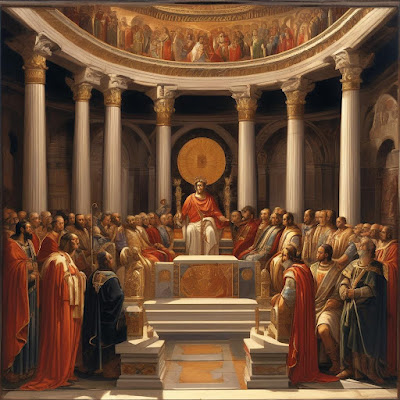The Catholic Church’s Stance on Immigration and Border Enforcement
The Catholic Church's stance on immigration is rooted in the principles of human dignity, compassion, and the rule of law. While the Church advocates for the humane treatment of migrants, it also acknowledges the rights of nations to regulate their borders for the common good.
Church Teaching on Immigration and Border Enforcement
The Catechism of the Catholic Church (CCC) articulates a balanced view on immigration. It recognizes the right of individuals to migrate in search of better living conditions and the corresponding right of nations to control their borders. Specifically, CCC 2241 states:
"The more prosperous nations are obliged, to the extent they are able, to welcome the foreigner in search of the security and the means of livelihood which he cannot find in his country of origin. Public authorities should see to it that the natural right is respected that places a guest under the protection of those who receive him."
This passage underscores the duty of wealthier nations to assist migrants while also emphasizing the role of public authorities in regulating immigration to ensure the common good.
Pope Francis' Perspective
Pope Francis has been a vocal advocate for the rights and dignity of migrants. In a letter to U.S. bishops dated February 11, 2025, he expressed concern over policies that criminalize migrants, stating that approaches based solely on force "will end badly." He emphasized the need for compassion and solidarity, urging that migration policies be grounded in truth and respect for human dignity (usccb.org).
While the Pope calls for the humane treatment of migrants, he does not advocate for open borders. Instead, he acknowledges the right of nations to control their borders but cautions against policies that dehumanize individuals fleeing hardship. His position is a call to balance mercy with law and order.
Can a Devout Catholic Support “Enforcement First” Immigration Policies?
Yes. A devout Catholic can and should support lawful and just border enforcement policies while remaining faithful to Catholic teaching. Being pro-border security is not incompatible with Catholicism—rather, it aligns with the Church’s teachings when balanced with justice, charity, and prudence.
The Catholic faith teaches that nations have the right and duty to:
- Protect their citizens from security threats, organized crime, and human trafficking.
- Ensure economic stability and social order by preventing unchecked migration that could strain resources.
- Enforce just laws while treating migrants with dignity and respect.
- Address the root causes of migration, such as poverty, violence, and corruption in home countries.
Catholics must reject cruelty toward migrants, but they are not morally obligated to support open borders or policies that ignore the rule of law. Immigration must be handled in a way that reflects both mercy and justice—a balance between welcoming the stranger (Matthew 25:35) and ensuring lawful, orderly migration (Romans 13:1-7).
A Practical and Faithful Approach to Immigration
From a Catholic perspective, supporting an "enforcement first" immigration policy aligns with Church teaching when it balances the rule of law with compassion. Such an approach emphasizes:
- Sovereignty and Security: Nations have a responsibility to protect their citizens and maintain order, which includes regulating who enters the country.
- Economic Stability and Social Cohesion: Controlled immigration ensures that resources are managed effectively and that societal structures remain stable.
- Upholding Human Dignity: While enforcing laws, it's imperative to treat all individuals with respect, ensuring that policies do not lead to unnecessary suffering or discrimination.
History has demonstrated that granting amnesty without robust enforcement measures can lead to increased illegal immigration, as seen with the 1986 Immigration Reform and Control Act. Therefore, a policy that prioritizes enforcement seeks to prevent such outcomes by ensuring that immigration laws are respected and upheld.
Conclusion: A Catholic Case for Border Security and Lawful Immigration
A faithful Catholic can support strong border security and enforcement while still upholding the moral obligation to treat migrants with dignity. The Catholic perspective calls for both justice and mercy, meaning that while we should support humane treatment of migrants, we must also uphold the rule of law.
A balanced immigration policy should prioritize enforcement first, ensuring that existing laws are respected and enforced before considering any pathways for legal status. This approach does not contradict Catholic values but rather reflects a just and orderly system that serves the common good.
In short, Catholics are not required to advocate for open borders, nor should they support policies that encourage lawlessness and exploitation. True Catholic social teaching calls for prudence, justice, and charity—all of which can be achieved by enforcing immigration laws compassionately, but firmly.







.jfif)

.jfif)


.png)


.png)